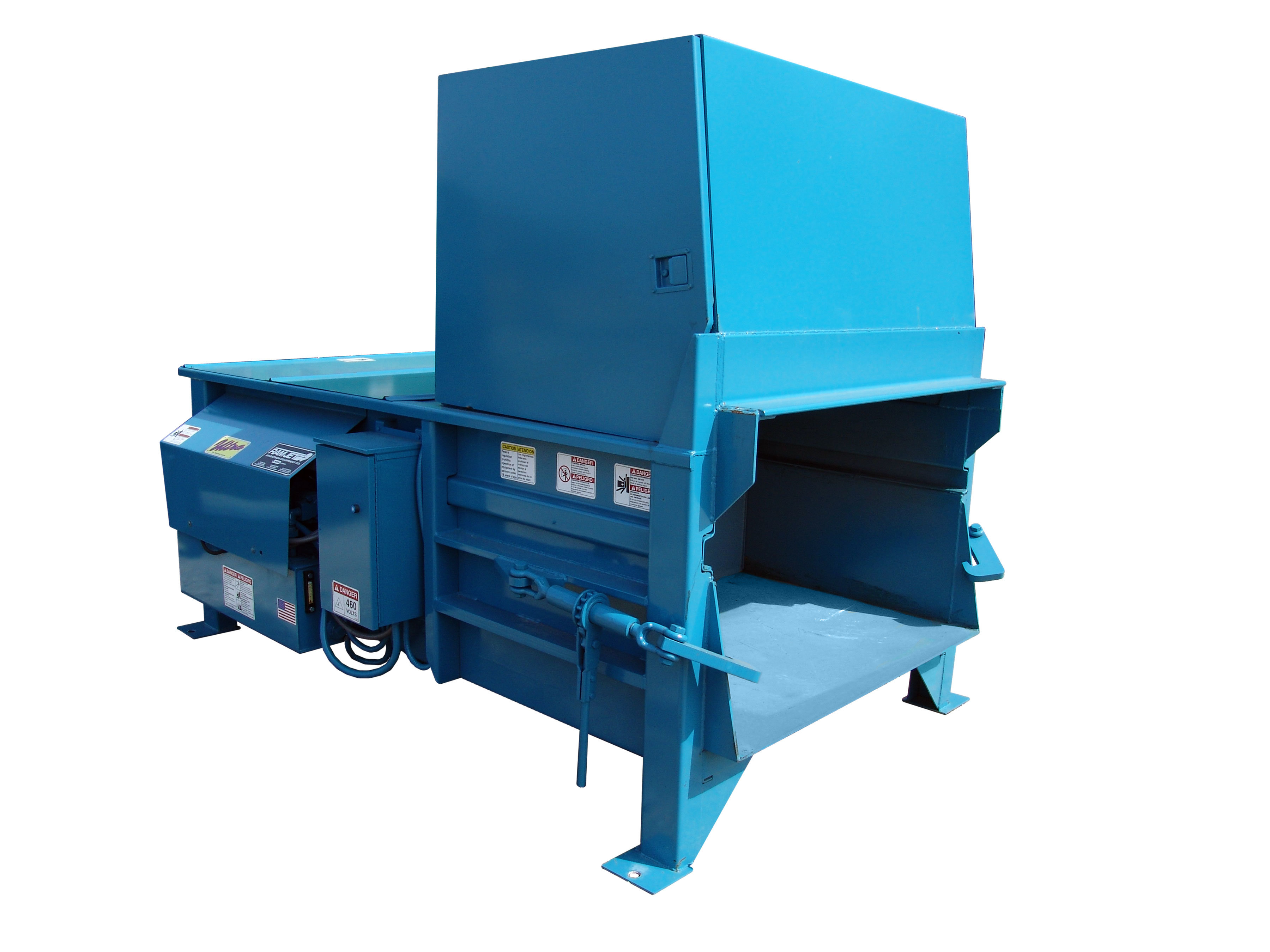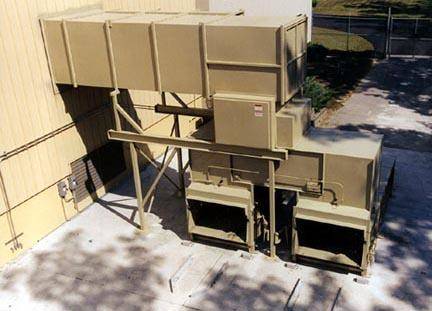How Commercial waste compactor equipment helps with cost efficiency
The Function of Waste Equipment in Encouraging Sustainable Waste Disposal Practices
Waste Equipment serves an essential role ahead of time sustainable garbage disposal techniques. It includes a variety of devices designed to improve the performance of waste segregation, collection, and processing. By using Equipment such as compactors, shredders, and recycling bins, communities can greatly lower their dependence on landfills. The effect of these devices expands beyond functionality. Comprehending their wider implications reveals understandings right into just how they form environmental obligation and community involvement. What exists ahead in this evolving landscape?
Comprehending Waste Equipment and Its Relevance
Waste Equipment plays a necessary duty in efficient waste administration systems. It incorporates a series of devices and machinery designed to take care of, process, and deal with waste products effectively. Understanding waste Equipment is necessary for organizations, districts, and services intending to execute lasting garbage disposal practices - Commercial garbage compaction equipment. Appropriately working waste Equipment not only enhances the collection and transport of waste but likewise decreases ecological effect by making certain that waste is taken care of sensibly
The value of waste Equipment encompasses boosting recycling efforts, reducing landfill use, and promoting resource healing. Equipment such as shredders, balers, and compactors assist in the handling of waste, making it simpler to divide recyclable products from basic refuse. Furthermore, advancements in waste technology add to the advancement of more eco-friendly options, thus strengthening the dedication to sustainability. On the whole, waste Equipment acts as a cornerstone for efficient waste management, promoting a cleaner and much healthier environment for future generations.
Sorts Of Waste Equipment for Effective Waste Monitoring
Efficient waste monitoring counts on different types of Equipment created to deal with particular disposal needs. Amongst these, compactors play a crucial role by minimizing the volume of waste, making transportation a lot more efficient. Shredders are essential for damaging down big things, assisting in much easier handling and disposal. In addition, balers press recyclable materials right into workable bundles, optimizing storage space and transportation.
Containers and containers are fundamental for accumulating waste at the resource, guaranteeing appropriate partition and reducing contamination. For unsafe materials, specialized Equipment, such as drum crushers and leak-proof containers, is essential to ensure safety and compliance with policies.
Lastly, transport lorries furnished with hydraulic systems enhance the performance of waste collection and disposal processes. Each sort of waste Equipment adds to a streamlined waste administration system, advertising sustainability and lowering ecological effect via effective disposal methods.
The Role of Recycling Bins in Sustainable Practices
Recycling bins play an essential duty in promoting lasting methods by helping with effective waste separation. By offering marked containers for recyclable materials, they motivate people to embrace eco-friendly habits. This simple execution significantly adds to reducing garbage dump waste and enhancing reusing rates.
Efficient Waste Separation
Correct waste splitting up plays an important role in advertising sustainable techniques, and reusing bins function as a substantial tool in this process. By plainly comparing recyclables, compostables, and general waste, these bins help with effective sorting, lessening contamination and making best use of recycling performance. Their critical positioning in public and personal rooms encourages individuals to take part in responsible waste disposal. The usage of color-coded containers helps to streamline the splitting up process, making it intuitive for customers. This business approach not just improves reusing rates but additionally increases awareness regarding the importance of waste administration. Basically, reusing bins are fundamental components that sustain effective waste separation, ultimately adding to an extra sustainable environment and lowering the total stress on land fills.
Encouraging Eco-Friendly Behavior
Although people might be inclined to overlook their effect on the setting, the visibility of reusing bins greatly affects green habits. These bins serve as aesthetic tips, encouraging individuals to different recyclables from general waste. Their critical positioning in public spaces promotes ease of access, making it easier for people to take on sustainable methods. Research studies suggest that when reusing bins are readily available, recycling rates boost significantly, mirroring a straight correlation between framework and actions. In enhancement, vivid signage on these bins educates users about what materials can be recycled, decreasing contamination rates. By fostering a society of recycling, these bins not just help with appropriate waste administration but additionally inspire a cumulative responsibility toward ecological stewardship, eventually adding to a much more lasting future.
Composting Solutions: Transforming Waste Into Resources
Composting systems act as a crucial tool in transforming natural waste into valuable resources, supplying countless ecological benefits. Numerous kinds of composting Equipment accommodate different requirements, making the procedure obtainable to both individuals and areas. Understanding the composting process is crucial for optimizing its performance and advertising sustainable waste monitoring practices.
Advantages of Composting Systems
Several areas are significantly acknowledging the various advantages of composting systems, which change organic waste right into beneficial sources. These systems properly lower garbage dump waste, therefore reducing greenhouse gas discharges and saving natural sources. By converting food scraps, lawn waste, and various other natural products into nutrient-rich compost, they improve soil health and wellness and fertility, promoting sustainable agriculture practices. In addition, composting assists to maintain wetness in the dirt, lowering the need for chemical fertilizers and watering. It promotes biodiversity by offering a habitat for valuable microbes and bugs. Furthermore, composting educates people concerning environmental stewardship, urging a culture of sustainability. In general, composting systems play an essential role in producing a circular economic climate, where waste is decreased, and resources are reused.
Kinds of Composting Equipment
A variety of composting Equipment is offered to assist in the reliable handling of natural waste into useful link compost. These systems range from straightforward yard compost bins to advanced business composters. For home use, tumblers and fixed bins are popular, permitting convenient aeration and mixing. Aerated fixed heaps utilize blowers to enhance air flow, significantly quickening decomposition. Massive operations might employ in-vessel composters, which regulate temperature level and humidity for perfect composting problems. Worm composters, or vermicomposting systems, harness the all-natural digestive procedures of worms to damage down raw material. Additionally, chippers and shredders assist prepare products by minimizing size, promoting faster breakdown. Each kind of Equipment serves certain needs, making it possible for diverse composting methods that add to sustainable waste management.
Composting Refine Explained
The composting procedure transforms natural waste into nutrient-rich resources through a collection of chemical and organic responses. Microbes such as bacteria and fungi break down natural products, including food scraps and yard waste. This disintegration creates warm, facilitating further microbial task and increasing the failure procedure. As the garden compost develops, the temperature decreases, enabling he said valuable microorganisms to prosper. The existence of oxygen is essential, advertising cardio problems that improve microbial performance. Throughout this procedure, carbon-to-nitrogen proportions have to be preserved to optimize decomposition. Completion outcome is humus, a dark, crumbly material abundant in nutrients, which can be utilized to improve dirt, support plant growth, and add to sustainable farming practices.
Ingenious Technologies in Waste Collection and Disposal
As cities come to grips with enhancing waste volumes and ecological concerns, cutting-edge modern technologies in waste collection and disposal arise as essential options. Smart waste bins furnished with sensors track fill levels, maximizing collection courses and minimizing fuel usage. These containers can also communicate with waste administration systems, reducing and facilitating timely pickups overflow concerns. On top of that, autonomous vehicles, including drones and robot systems, are being deployed to improve operational performance in waste collection.
Improvements in arranging modern technologies, such as expert system and device learning, make it possible for more effective reusing procedures by quickly determining and dividing materials. Waste-to-energy modern technologies transform organic waste into sustainable energy, lowering landfill reliance and adding to energy sustainability. These developments not just simplify waste management practices yet likewise advertise a round economic situation, thus cultivating a sustainable approach to garbage disposal. Eventually, the combination of these technologies plays an essential role in dealing with city waste difficulties and improving ecological stewardship.
Area Interaction Through Waste Equipment
While efficient waste monitoring relies greatly on sophisticated innovations, area interaction through waste Equipment plays a vital duty in fostering sustainable practices (Commercial garbage compaction equipment). Waste Equipment, such as reusing bins and composting stations, offers not only as functional devices but likewise as drivers for neighborhood understanding and engagement. By putting these resources in easily accessible this website places, districts urge individuals to take an active role in waste reduction and reusing efforts
Educational projects coming with waste Equipment installments can better improve area involvement, guiding locals on appropriate disposal techniques and the advantages of sustainable methods. In addition, neighborhood occasions that utilize waste Equipment, such as clean-up drives and reusing obstacles, influence collective activity and build a feeling of duty amongst area members.

The Future of Waste Management and Sustainable Solutions
Innovations in modern technology and changes in societal perspectives are forming the future of waste administration and lasting solutions. Smart waste monitoring systems, making use of IoT devices, are enabling real-time tracking of waste degrees, enhancing collection routes, and lowering carbon impacts. These advancements not only improve effectiveness yet also promote reusing and composting initiatives by providing data-driven understandings.
The surge of round economic situation techniques motivates business to rethink item style, focusing on reusability and recyclability. This shift fosters a culture of sustainability, where consumers are significantly requiring green products.
Furthermore, area involvement in waste monitoring is becoming increasingly vital, with academic programs equipping individuals to take responsibility for their waste. As federal governments worldwide carry out stricter guidelines on waste disposal, organizations and areas are prompted to take on sustainable methods. Together, these aspects lead the way for a future where waste is lessened, and resources are preserved, ensuring a much healthier earth.
Regularly Asked Questions

Just How Can Companies Profit Economically From Purchasing Waste Equipment?
Purchasing waste Equipment can cause considerable financial advantages for businesses. By boosting effectiveness, reducing disposal expenses, and improving reusing capacities, business can decrease operational costs and potentially create profits with recouped materials.
What Rules Control using Waste Equipment in Different Regions?
Different laws regulate waste Equipment use, varying by area. These include ecological requirements, security procedures, and functional guidelines, targeted at ensuring compliance, advertising public health, and reducing ecological impact linked with waste monitoring techniques.
Just how Do I Pick the Right Waste Equipment for My Demands?
Choosing the ideal waste Equipment demands reviewing certain waste kinds, volume, and disposal methods. Researching readily available choices, speaking with professionals, and considering regulatory conformity will help in making a notified choice customized to specific needs.
What Are the Environmental Influences of Ineffective Waste Equipment?
Inefficient waste Equipment can cause increased emissions, higher power consumption, and greater land fill overflow. It often causes improper waste partition, intensifying pollution and adversely affecting ecological communities, which inevitably impedes lasting waste administration initiatives.
Exactly How Can Waste Equipment Be Maintained for Optimum Efficiency?
Waste Equipment can be kept for peak performance with regular assessments, prompt repair services, appropriate cleansing, and adherence to producer guidelines. This assures efficiency, extends Equipment lifespan, and lessens environmental effect during waste monitoring procedures.
Waste Equipment plays a vital function in effective waste management systems. Comprehending waste Equipment is important for towns, businesses, and companies aiming to implement sustainable waste disposal methods. While reliable waste monitoring depends greatly on advanced technologies, area interaction through waste Equipment plays an essential role in cultivating sustainable methods. Neighborhood participation in waste monitoring is becoming increasingly necessary, with educational programs encouraging people to take responsibility for their waste. Selecting the proper waste Equipment demands evaluating certain waste types, quantity, and disposal approaches.